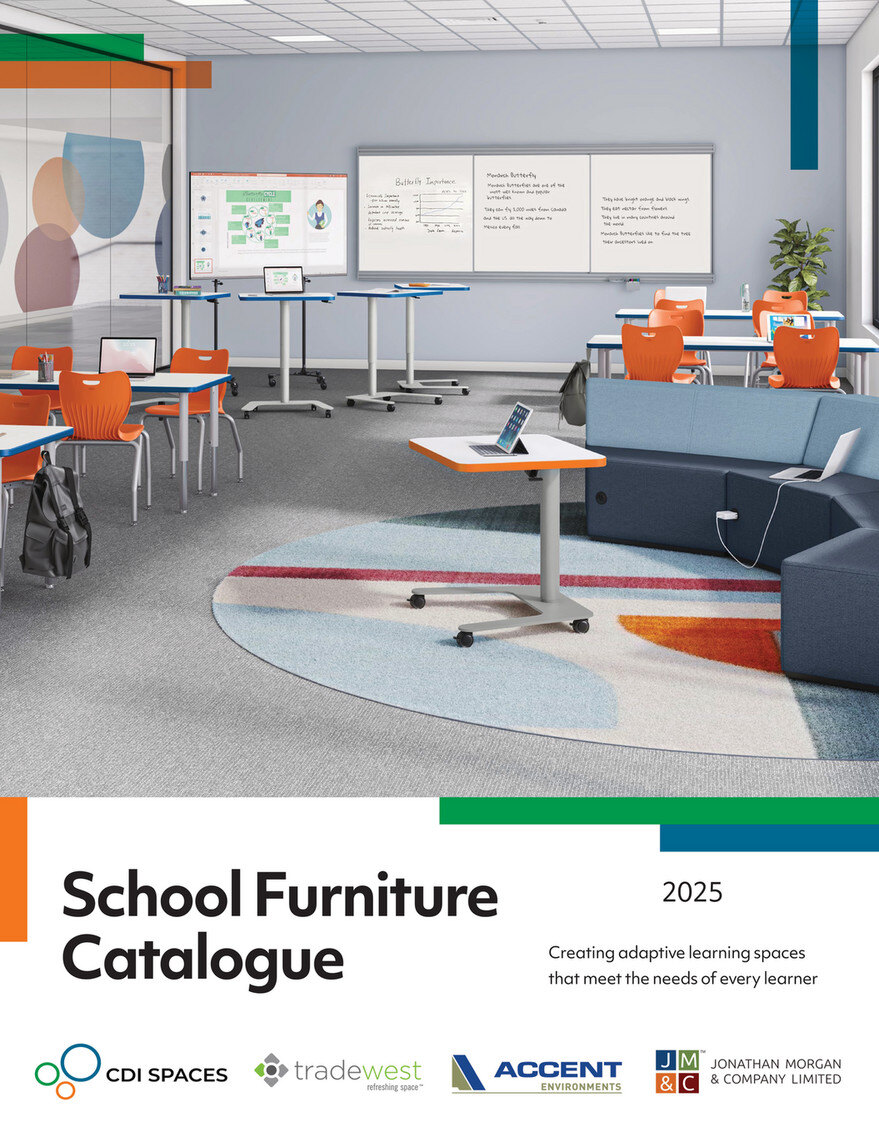Wellness Considerations for Working from Home
August 18, 2021

By Dr. Lauren Gant, PhD, CPE, WELL AP, Human Factors & Ergonomics Manager, Allsteel
Staying healthy is on everyone’s mind today. Our focus at the moment has (rightfully) been on disease prevention, however, it is important that we do not lose sight of promoting holistic wellness. We cannot overlook our physical health and mental wellbeing, especially in a climate where anxieties and stress levels may be higher than normal.
Many workers have suddenly found themselves being asked to work from home. Here are some tips for you to take care of yourself during your time working from home, ensuring that you are able to continue to be happy, healthy, and productive.
1. Office Set-Up
Workstation
- Ideally, all workstations would include a fully adjustable table, chair, and work tools. Adjust these tools to support healthy work postures. Check out our video on proper ergonomic adjustments. Check out our video on proper ergonomic adjustments.
- If you are working from home temporarily, availability of adjustable furniture may be limited. It is still possible to work in ergonomic postures using your own furniture. For example, if you must work at a dining room table and chair, consider adding extra cushions to the seat to elevate you to an appropriate height for healthy arm and wrist postures. It will also be necessary to support your feet, so they are not dangling. Try using those extra Amazon Prime boxes you have laying around as a footrest! Check out healthy sitting/standing postures.
- Alternate your working postures throughout the day. If you do not have an adjustable worksurface in your office, try standing at your kitchen counter periodically.
- Proper positioning of your keyboard and monitor is important to protect your wrists, shoulders, neck and back from pain and fatigue. Whenever possible, separate the monitor and keyboard to position each properly. That is, if using a laptop, also use an external keyboard and/or monitor and position both to allow for ergonomic and comfort.
- Listen to your body – if you are starting to feel fatigue or discomfort, reassess and reorganize your workspace.
Sit Near a Window (if possible)
- If possible, set up your office near a window to gain view of natural light and the outdoors. Avoid working in basements or windowless rooms for extend periods. Views of the outdoors and nature can improve mood and mental wellbeing. Natural light can even aid with circadian rhythm and improve sleep quality.
- Beware of glare. If necessary, adjust the position of your monitor and/or use blinds to control glare, which may contribute to eye strain.
- Temperature
- You finally have the personal control you always wanted! Take advantage!
Sound Distraction
- Think noise was a problem in the office? Now that you’re at home you may be juggling kids, pets, partners, etc. If possible, find a way to reduce noise during work periods that require concentration or creativity.
Organization
- Set up your work area to meet the needs of your day and the tools you need to complete your job effectively. Do you need reference materials? Video conferences? This may impact the size and location of your desk.
- Keep tools that are often used (e.g. notebooks, pens) close by. Other things that are rarely used (e.g. staplers, hole punches) can be located elsewhere to reduce clutter.
2. Physical Health
Move Your Body
- About every hour, change your posture and get a little physical activity.
- Try walking up and down the stairs, doing some high knees, or walking around the outside of the house (if you can do so safely).
- Pacing during phone calls can also provide full-body, dynamic movement without disengaging with your work.
- Exercise regularly, including cardiovascular activities, strength training, and flexibility training.
Drink Water
- Staying hydrated helps the body to maintain health. It is generally recommended that we drink between 50 and 100 oz a day.
- Mindful Eating
- Remove yourself from your work area and try to eat with a friend or family member, if you can do so safely. When we engage with our food and avoid eating alone, we tend to eat healthier and enjoy the eating experience more. The connection with another individual can also support mental wellbeing. If you are isolated while working from home, try video conferencing with a friend.
- Choose healthy foods (fruits, veggies, limit sugar and processed foods).
- Make sure that you are taking a meaningful break from work (30 minutes). When you return to work, you will be ready to be fully engaged in your work again.
Sleep
- We should be getting 7 or more hours of sleep. Too little sleep can lead to adverse health effects.
3. Mental Wellbeing
Stay Connected with Family & Friends
- Right now, the safest way to do this may be through a phone call or video chat.
Manage Stress
- Maintain realistic expectations given your constraints and work environment
- Communicate with work team and manager to discuss goals and challenges.
- Assess your ability to complete tasks. Do you have everything you need to complete your work appropriately?
- Ensure that your internet and phone in working order and reliable, if possible
- In addition to a significant lunch break, make sure that you are taking small breaks throughout the day. These breaks will not only help your mental state but may also allow you to stay productive throughout the day.
- Home workers often log more hours than those working in the office. It may be easy to work non-stop from waking up to late at night but remember to stay connected with non-work activities and rest as well.
Continue to consult medical and psychological professionals if needed. (this may be able to be done remotely)
- Discuss strategies to manage stress or anxiety, deal with uncertainties
- Manage changes to life/relationship changes
- Continue medication
4. Other Considerations
Help Your Community (if possible)
- Donate to food banks, reach out to elderly neighbors, call a friend’s child to have them read a book to you.
Cleaning & Disinfect Regularly
Emergency Preparedness
- Have an escape plan, a fire extinguisher, and medical contacts in an easy to locate place
Dr. Lauren Gant, PhD, CPE, WELL AP is the Human Factors and Ergonomics Manager at Allsteel. Lauren’s background in biomedical engineering allows her to apply human factors and ergonomics principles to the design of office furniture, and to research emerging trends in the office environment.

